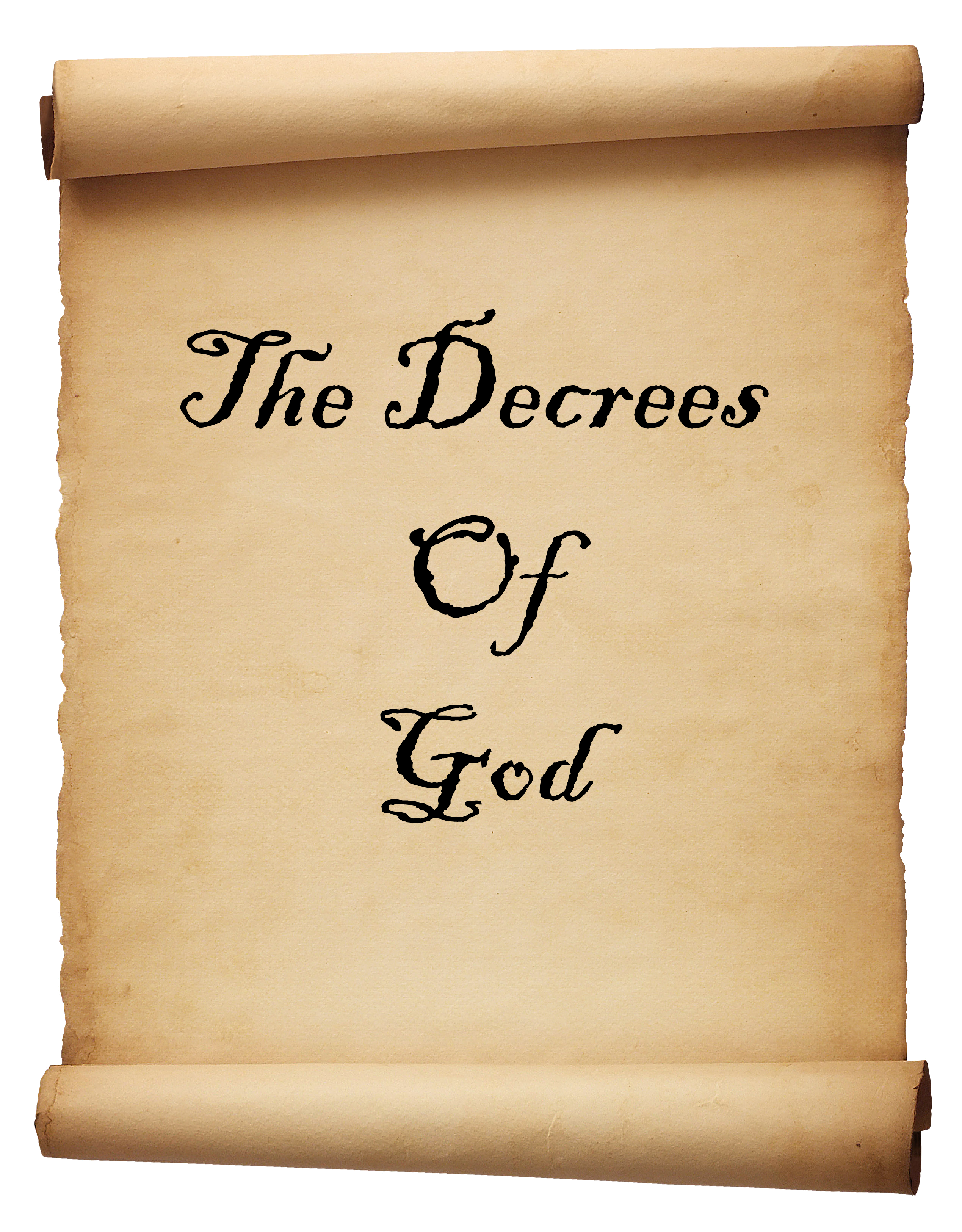Timing is everything. If I have something that is of a sensitive topic to discuss with my wife (like say the purchase of a new commentary or academic books like those from the amazing Craig Keener), I do not approach my wife when she is in a bad mood. Rather, I wait until she is in a fairly good mood to broker such a deal.[1] My bookcase already runneth over which to me is a sign that I need to get another bookcase to fill with more books. But that is a different topic, so I digress. Nevertheless, the timing of a series of events changes how certain ends come about. If I approached my wife with the idea of a new commentary after she had a bad day at work, chances are likely I will not get the commentary with her blessings. For those who say, “Well, get it anyway;” I would say, “You’re either not married, or not ‘happily’ married.” As the old adage goes, “Happy wife, happy life.” However, if I caught my wife on a good day and explained the value of the commentary, the end result would likely be different.
When it comes to the order of God’s decrees, timing is everything. In the theological world, there are three orders of God’s decrees that are presented: Supralaparianism, Infralapsarianism, and Sublapsarianism. When we mention the word “decree,” think of this as the timing of God’s decision. I decreed to write this article last Thursday, but I decreed to actually write the article on Monday, June 27, 2016. What are these orders and which fits the biblical narrative best?
Supralapsarianism
Supralapsarianism is accepted by what many call hyper-Calvinists or as Norman Geisler calls it “The Extreme Sovereignty View.”[2] Supralapsarianists accept the following order of God’s decrees:
- God decrees to save some and condemn others.
- God decrees to create both the elect (saved) and the reprobate (condemned).
- God decrees to permit the fall of both the elect and the reprobate.
- God decrees to permit salvation only for the elect.[3]
In this order, God decides to create both those who would be saved and would not be saved, and decides to only give salvation to those whom He chose to give salvation. In this scheme, the individual has no option but to follow the course that God has previously prepared for them. Such a plan is deterministic, or even perhaps fatalistic.
Infralapsarianism
A modified version of Supralapsarianism is Infralapsarianism. Infralapsarianists seek to soften the hardcore determinism found in Supralapsarianism by offering the following model:
- God decrees to create human beings.
- God decrees to permit the fall of humanity.
- God decrees to save the elect and condemn the rest.
- God decrees to provide salvation for the elect.[4]
In this model, God makes the decision to save a particular group of individuals after He decides to allow humanity to fall. Thus, God offers a bit of freedom to humanity. However, after humanity has fallen, God decides to select a few to save.
Sublapsarianism
Sublapsarianism differs from the previous two models presented. Sublapsarianists offer the following model for consideration:
- God decrees to create human beings.
- God decrees to permit the fall.
- God decrees to provide salvation sufficient for all.
- God decrees to save some and to condemn others.[5]
In this model, God creates humanity with a desire to save all, but chooses to save only some. Sublapsarianism is the softest of the three versions presented. One must ask, which fits the biblical narrative best?
Which fits the biblical narrative best?
To answer this question, certain biblical passages must be kept in mind. The Bible does not tell us of the particular order that God followed when creating humanity and developing the salvific plan. However, some passages imply a particular narrative. I wish to examine four segments of Scripture.
Exodus 4:21 and 8:15
In the story of the Exodus, God told Moses, “When you go back to Egypt, see that you do before Pharaoh all the miracles that I have put in your power. But I will harden his heart, so that he will not let the people go” (Exodus 4:21).[6] How did this hardening take place? Well, the reader is provided the answer later in the book. When God alleviated the plagues and “when Pharaoh saw that there was a respite, he hardened his heart and would not listen to them, as the LORD had said” (Exodus 8:15). Through this particular passage, we see that God absolutely knows what a particular person will do in certain circumstances. Notice too, it was God’s grace given to Pharaoh persuading him to repentance that led to Pharaoh’s heart-hardening.
Ezekiel 18:23 and 2 Peter 3:9
In Ezekiel 18:23, the LORD proclaims, “Have I any pleasure in the death of the wicked, declares the Lord GOD, and not rather that he should turn from his way and live?” One will note that God’s pleasure is not found in the death of anyone, including the wicked. This lends to a similar exegesis of 2 Peter 3:9 where Peter, not speaking of the elect but of all people, proclaims, “The Lord is not slow to fulfill his promise as some count slowness, but is patient toward you, not wishing that any should perish, but that all should reach repentance.” Some have argued that Peter was writing of the elect, but that makes no sense. For such an exposition would imply that the elect could be lost. If 2 Peter 3:9 is understood in the light of Ezekiel 18:23, which to me seems extremely reasonable, then one must acknowledge God’s desire for all people to repent.
Romans 11:11
In Romans 11:11, Paul notes that it was the fall of Israel that allowed the world to come to faith. Paul notes that the trespass of Israel was allowed so that “through their trespass salvation has come to the Gentiles” (Romans 11:11). This seems to be similar to the allowance of Pharaoh’s heart-hardening to bring forth faith to the people of God.
John 3:16
Perhaps John 3:16 is the most popular verse in the entire Bible. In this verse Jesus says,[8] “For God so loved the world, that he gave his only Son, that whoever believes in him should not perish but have eternal life” (John 3:16). The passage clearly dictates that the world was in mind with God’s sacrifice. The term cosmos implies the world, or an entirety of the global human race. Such a view is also in mind as Jesus continues in his discourse, saying, “Whoever believes in him is not condemned, but whoever does not believe is condemned already, because he has not believed in the name of the only Son of God” (John 3:18).
We could spend much more time on this issue evaluating other passages of Scripture. However, with the passages already examined, I think we have a good biblical case for sublapsarianism. Millard Erickson notes, “It is the view that God logically decides first to provide salvation, then elects some to receive it. This is essentially the sublapsarian position of theologians like Augustus Strong” [7]. While there are certainly those that disagree, I would say that sublapsarianism allows for the love of God to be fully seen as well as His amazing power and knowledge. An additional question may be asked. Why did God allow for the fall and for some to be condemned in the first place? I think C. S. Lewis says it well, “Why, then, did God give them free will? Because free will, though it makes evil possible, is also the only thing that makes possible any love or goodness or joy worth having.” A world where the fullness of love is possible to be given and received in its initial form, there must be the availability that such love would be rejected. Sublapsarianism seems to answer this well.
© June 27, 2016. Brian Chilton.
Notes:
[1] And yes, I am exaggerating.
[2] Norman Geisler, Chosen but Free: A Balanced View of God’s Sovereignty and Free Will (Minneapolis: Bethany House, 2010), 15.
[3] Millard Erickson, Christian Theology, 2nd ed (Grand Rapids: Baker, 1998), 842, 2n.
[4] Ibid.
[5] Ibid.
[6] Unless otherwise noted, all Scripture comes from the English Standard Version (Wheaton: Crossway, 2001).
[7] Erickson, Christian Theology, 852.
[8] Some hold that the verse is part of a section where John the apostle synthesizes Jesus’ message, rather than holding that the section is part of Jesus’ actual message. The NIV 2011 and NET translators hold this view. I personally feel that the section belongs to the teaching of Jesus. John may have compacted the message of Jesus for simplicity’s sake. Nevertheless, I hold that John 3:16 was part of Jesus’ message to Nicodemus.





